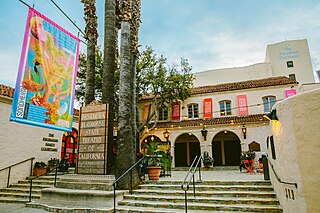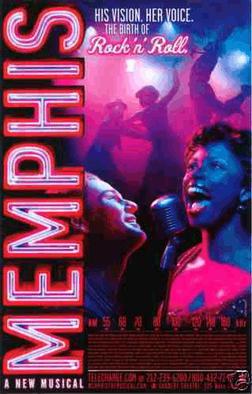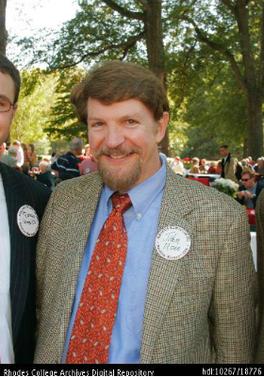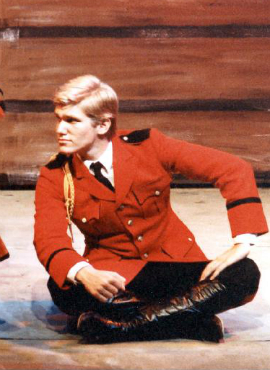History
In the holiday season of 1920, Mrs. Fairfax Proudfit Walkup [2] called a group of interested friends to form a "little theatre." The Memphis Little Theatre Players was thus founded in 1920 with 56 members [3] and presented three one-act plays (The Dream, Aren't They Wonders, and Helena's Husband) as its first performance on May 20, 1921 in Germania Hall at Third Street and Jefferson Avenue. The company was chartered on January 17, 1922 for the purpose of "producing plays, encouraging the art and the writing of plays, and the uplift of the drama and its allied arts..." Later stagings occurred in the auditorium of the Nineteenth Century Club on Third Street and at St. Agnes Conservatory on Vance. In 1925, a merger was made with the Drama League (the local chapter of a national organization that supported the theatrical arts), and a new Memphis Little Theatre was born. Also in 1925, the Theatre opened its doors to its first permanent home, named the Stable Playhouse, a 90-seat venue housed in a former stable on the grounds of the James Lee Art Academy at Adams and Orleans. Through the generosity of many Memphians who gave "One Hundred Dollar" subscriptions, and through the courtesy of the Memphis Park Commission, in October 1929 the Memphis Little Theatre moved into its second permanent home (the Pink Palace Playhouse) a 272-seat venue in the east wing of the Memphis Museum of Natural History and Industrial Arts (now known as the Pink Palace), the unfinished mansion of Piggly Wiggly founder, Clarence Saunders. The theatre operated in the shallow end of the swimming pool of the mansion, a suggestion from Mrs. Clarence (Carolyn) Saunders).
Plays presented in the early years apparently did not have great popular appeal, and a search was made for a new director who would broaden the scope of the theatre's repertoire and broaden the theatre's audience. In September 1932, Eugart Yerian, a graduate of Pasadena Playhouse in California, arrived as theatre director and served in that position until 1961 (except for the period 1939-1947, when he was away from Memphis). In 1961 Eugart Yerian left to become Director of Visual Aids for The Holiday Inn Corporation. During Yerian's tenure, the Memphis Little Theatre was recognized nationally as one of the leading amateur theatres in the United States, and Yerian was honored with numerous awards for his outstanding direction. Yerian received the Fannie E. Morrison Award from Pasadena Playhouse in 1953 as alumnus of special distinction in the theatrical world.
In 1962, Sherwood Lohrey was named theatre director where he remained until his retirement in 1995. In the 1960s, the Theatre's board put together plans for a new building to be located on a triangle of land located at 630 Perkins Extended, across from Audubon Park, that the city had agreed to lease to the organization starting in 1969. [3] (Although Theatre Memphis owned the building that it constructed and occupied, the City of Memphis owned the land and the Theatre rented it for $100 per month under a lease that was initially 50 years, and then extended until 2069.) A fund drive was aiming to raise $600,000 for a new facility, but rising prices and a difficult economy meant the facility would eventually cost $1.3 million. In September 1970, the Commercial Appeal announced that the Little Theatre was embarking on a "mammoth drive to raise $1,291,000 for a new playhouse in Audubon Park." By the summer of 1973 enough money had been pledged to convince the board to give architect Wells Awsumb and contractor Tom Thayer the go-ahead, and a groundbreaking was held on Sunday June 3, 1973. In 1974, the Board chose Theatre Memphis as its new name. Construction was completed in April 1975, and on May 1, 1975, the theatre opened a 30-performance production of My Fair Lady in its new and present location, a 435-seat venue at 630 Perkins Extended. [4]
An expansion project was completed in 1985 that added a full rehearsal hall, staff office space, additional restrooms, a meeting room/library and a production shop ten times the size of the original shop.
After initiating a SHINE ON construction and endowment capital campaign, a planned shutdown for renovations beginning in December 2019 enabled an expansion that included 21 restrooms (up from 8), expanded concession service areas, enlarged common areas, a dedicated Will Call office, additional production shop space and a new catering kitchen to service events. [5] The renovation was designed by the architecture firm Rennaissance Group and constructed by contracting firm Grinder, Taber & Grinder. [6] On March 9, 2020, The City of Memphis donated the two parcels of land at 630 South Perkins to the Theatre. [7] Due to the COVID 19 pandemic, a grand re-opening was postponed, but in August 2021 the Theatre re-opened and celebrated the upgraded facility as well as the 100th anniversary of Theatre Memphis.
Today Theatre Memphis' two-acre campus is located in the heart of Memphis and includes two state-of-the-art venues (the 411 seat, proscenium Lohrey Theatre and the 110 seat, black box Next Stage). Theatre Memphis has expanded its personnel to 14 full-time staff members and over 700 volunteers. They have also upgraded their current facilities, expand community outreach and consistently balance annual budgets [8]
Fairfax Produfit Walkup [9]
Fairfax Proudfit Walkup was born November 17, 1887 in Memphis, Tennessee. She began studies at Vassar College in 1905, but was forced to withdraw to care for her family; in 1922, she returned to her studies, earning a Bachelor of Arts degree from the University of California and then Master's and Doctoral degrees from the University of Utah, where her studies focused on costume, set design, and theater history. She moved to Pasadena in 1924 and immediately became involved with the Pasadena Community Playhouse as an actress, including in Playbox productions. Walkup also served as a costumer for the Playhouse, and taught courses in costume and fashion, eventually rising to positions including Dean of the Pasadena Playhouse College of Theatre Arts, Vice-President of the Playhouse, and member of the Board of Trustees. Actress, stage director, and teacher Lenore Shanewise was born October 12, 1887 in Denver, Iowa. She studied at the University of Northern Iowa; at Iowa State Teachers College, where she later taught English, elocution, and interpretive reading; and at the University of Chicago, where she studied public speaking and drama and participated in the Dramatic Club; graduated from in 1911. In 1916, spurred by health concerns, she visited California, joining the drama section of the Schubert Club in Los Angeles; after returning to her teaching duties in Iowa and teaching at other colleges, she moved once again to California, in 1921, and remained there for the rest of her professional career. Shanewise began taking courses at the Summer Arts Colony and soon joined the Pasadena Community Players. She became an assistant director at the Pasadena Community Playhouse in 1923 and remained there for four decades, acting in or directing hundreds of productions; giving lectures on community play production and on modern theater; and mentoring actors, including Raymond Burr. In the 1950s and 1960s, she also acted in television productions, including on Burr's show, Perry Mason; NBC's Matinee Theater; and The Twilight Zone. Shanewise retired from the Playhouse in 1967 and died in San Diego on December 22, 1980.
Executive producers
- 1920-1921 Mr. Harrison Crofford
- 1921-1925 Mrs. John Frederick Bruce
- 1925-1926 Mr. Minor Coburn
- 1926-1927 Mr. Colin Clements
- 1927-1929 Mr. Alexander Wyckoff
- 1930-1932 Mr. Blanchard McKee
- 1932-1939 Mr. Eugart Yerian
- 1939-1941 Mr. Talbot Pearson
- 1941-1943 Mr. Fred Sears
- 1943-1944 Mr. George F. Sparks
- 1944-1946 Mr. William Courneed
- 1946-1947 Mr. Charles F. Coghlan
- 1947-1961 Mr. Eugart Yerian
- 1962-1995 Mr. Sherwood Lohrey
- 1995-2000 Mr. Michael Fortner
- 2000-2001 Mr. Andre Bruce Ward
- 2001-2004 Mr. Ted Strickland [10]
- 2004–Present Mrs. Debbie Litch
Debbie Litch
In June 2004, Debbie Litch was named executive producer. [11] Litch is credited with turning around the failing theatre. [12] Before being named Executive Producer at Theatre Memphis, Litch was director of development at Memphis Brooks Museum of Art and interim executive director and director of marketing and development at the Memphis Symphony Orchestra.
Her outstanding service has earned her the Memphis Symphony Hebe Award, Germantown Arts Alliance Patron of the Arts Award, the Gyneka Award from the Women's Theater Festival of Memphis, the Memphis Ostrander Theater Janie McCrary "Putting It Together Award", the Diamond Crown Organization Award from the American Association of Community Theatre, the Distinguished Merit Award from the American Association of Community Theatre, the Amphion Award from the Memphis Symphony League and the Tennessee Governor's Award for Arts Leadership. [13] Ms. Litch garnered national recognition for Theater Memphis from the American Association of Community Theaters by accepting the Twink Lynch Award for "successfully completing major steps in new directions, expanding services to communities, or moving to the next level of an organizational development.
Ms. Litch plays a vital role in the promotion, stability and growth of the arts in the City of Memphis. She is an active member of the Memphis Cultural Coalition, a roundtable of the city's cultural leaders.











